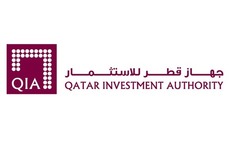
AVCJ at 25: Renuka Ramnath of Multiples Alternative Asset Management
Renuka Ramnath, founder and CEO of Multiples Alternative Asset Management, helped kick-start India VC as ICICI Venture grew from a small-scale backer of internet start-ups into the country’s leading private equity firm
Renuka Ramnath's departure from ICICI Venture Funds Management in 2009 represented not only India's most-high profile spin-out but also the end of an era. She had spent more than 20 years with ICICI Group, the last eight of them as CEO of its wholly-owned private equity business that had grown from nothing into the largest domestic investment organization of its kind.
"I had no choice but to leave - my ideology for ICICI Venture and ICICI's ideology were completely divergent," says Ramnath, who is now founder, managing director and CEO of Multiples Alternative Asset Management. "I firmly believe that a VC firm should be a stand-alone entity managing third-party capital and highly respective to the requirements of international LPs. ICICI believes that it is a big brand and they can run it just like they run their insurance or banking businesses."
She traces her ideology all the way back to a period spent at Harvard Business School in the 1990s participating in an advanced management program. The tech bubble was at its most inflated and anyone with a business degree and an internet connection had ambitions to create a tech start-up. Ramnath wanted to do the same in India.
"I had been bitten by the entrepreneurial bug," she says. "I wanted to develop something in e-commerce over and above what was already being done. I started to incubate e-commerce start-ups and make a few investments in other internet companies - online marketplaces, technology providers, software solutions companies. The general idea was to leverage internet penetration."
It was 1999 when Ramnath started creating an e-commerce network and ICICI Venture gave her the firepower to do it with the INR1 billion (then $18.5 million) EcoNet Fund. Within two years Compaq came on board as an LP and strategic partner. Among the first investments was BillJunction.com, a domestic payment service provider that was sold to a clutch of PE investors in 2007.
India's online population stood at about 2.8 million in 1999; one year later it had nearly doubled and by 2009 it was 61.8 million; in the last two years it has doubled in size again to 121 million. Ramnath's venture activities largely followed this trajectory - deal sizes got larger and there began to be some crossover between ICICI's EcoNet and venture vehicles as investment into technology and internet-related companies grew in popularity. She was appointed CEO of ICICI Venture in 2001.
"There was a position and they offered me the job because I was passionate about it," Ramnath says. "I was very excited to do it and they had confidence in me as an entrepreneur at heart."
ICICI Venture's investment horizons broadened, with minority commitments made to the likes of cinema chain PVR, GMR Infrastructure, Centurion Bank of Punjab, Reliance Petroleum and Metropolish Health Services. It also became the first Indian private equity firm to branch out into buyouts and corporate carve-outs.
ICICI Venture's debut carve-out was the acquisition of Ranbaxy Laboratories' diagnostics, fine chemicals and animal health divisions for INR1.25 billion in 2005. The animal healthcare business, Vetnex, was sold to Pfizer four years later for about INR3.75 billion while the remaining assets - operated as RFCL - were picked up by Advantor Performance Materials for approximately INR5 billion in 2010.
Ramnath also highlights ACC Refractories, bought from Associated Cement Companies for INR2.57 billion in 2005 and sold on to Calderys for INR5.5 billion within two years. "It was a case of taking practices from the West, modifying them for the local market, and then pursuing opportunities for a sufficient period of time," she says. "These were divisions of companies and the sellers were only interested in groups that could take 100% ownership and develop the business. It wasn't for minority investors."
Of all ICICI Venture's achievements during this period, arguably the most significant was exiting the legacy portfolio within an agreed timeframe - the EcoNet fund returned $150 million to ICICI, while Series I of the India Advantage Fund, an INR11 billion private equity vehicle launched in 2001, delivered an IRR in excess of 70%. As the likes of ICICI Ventures and ChrysCapital began to build up a stream of profitable exits, the international LP community became more interested.
Capital expansion
Ramnath identifies the turning point as 2005. ICICI Ventures launched the India Advantage Fund Series II and raised $1 billion, although $200 million was subsequently returned to investors due to concerns about fund size. Parallel real estate and mezzanine vehicles were also introduced. According to AVCJ Research, India fundraising jumped from $816 million in 2004 to $3.16 billion in 2005 followed by an even steeper ascent ending in a peak of $13.2 billion in 2008. It dropped off a cliff the next year and has yet to recover, with $2.2 billion raised between January and October 2012.
With the benefit of hindsight, what contributed to the build-up of capital? "They all believed India would generate sufficient opportunities," says Ramnath. "A larger M&A market was contemplated with more corporate high-ball. Even among smaller companies - those raising money to make acquisitions, for example - we expected significant expansion because India is a large country. The excess liquidity pushed up valuations and that is the main reason why funds have underperformed."
She argues that the valuation problem is still there, although in these more straightened times GPs are now less likely to compromise on terms and willing to walk away from deals. Eventually, entrepreneurs' expectations should moderate.
Multiples reached a final close of $450 million for its debut vehicle in November 2011, with commitments coming from CDC Group and Canada Pension Plan Investment Board and Indian Overseas Bank, among others. The smaller corpus means the typical deal size of around $50 million pursued in the latter days at ICICI Venture has fallen by half, but the underlying strategy remains the same.
"I didn't expect PE to bring more than $10 billion into the country in such a short space of time," Ramnath observes. "In 2003, I was struggling to raise $200 million, but by 2005 I could get $1 billion. We were fortunate that we exited our fund I portfolio on time. For Indian private equity as a whole, exits are not something we can be proud of. But if you haven't got a lot of experience and people keep telling you the price will go up further, it's difficult to sell."
Latest News
Asian GPs slow implementation of ESG policies - survey
Asia-based private equity firms are assigning more dedicated resources to environment, social, and governance (ESG) programmes, but policy changes have slowed in the past 12 months, in part due to concerns raised internally and by LPs, according to a...
Singapore fintech start-up LXA gets $10m seed round
New Enterprise Associates (NEA) has led a USD 10m seed round for Singapore’s LXA, a financial technology start-up launched by a former Asia senior executive at The Blackstone Group.
India's InCred announces $60m round, claims unicorn status
Indian non-bank lender InCred Financial Services said it has received INR 5bn (USD 60m) at a valuation of at least USD 1bn from unnamed investors including “a global private equity fund.”
Insight leads $50m round for Australia's Roller
Insight Partners has led a USD 50m round for Australia’s Roller, a venue management software provider specializing in family fun parks.







